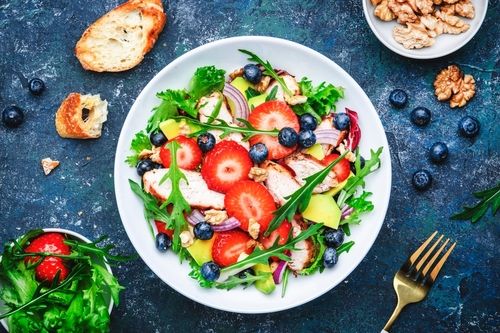Scientists from Northern countries have just published their dietary recommendations: we detail the Nordic Nutrition Recommendations (NNR) for 2023.
We know: to live a long and healthy life, it is essential to adopt good eating habits, that is to say, to “eat a balanced diet”. But what does that mean, exactly?
To guide us, scientists from Northern countries (that is to say: the Scandinavian countries and the Baltic countries) regularly publish a list of recommendations: these are the Nordic Nutrition Recommendations (NNR).
More fruits and vegetables, more whole grains, no alcohol
Here are the most recent “guidelines” from scientists for “eating a balanced diet” at home:
- Fruits, vegetables and berries should constitute the basis of the daily diet: researchers recommend consuming at least 500 g per day.
- Then arrive whole grains (rice, pasta, flour…) and legumes (lentils, chickpeas, red beans, etc.), which are interesting both nutritionally and ecologically: researchers recommend eating at least 90 g per day.
- Fish must constitute the main source of animal proteins with a recommended intake of between 300 and 450 g per week, including 200 g of fatty fish (salmon, mackerel, sardines, herring, etc.).
- For environmental reasons (but not only), Red meat must be limited to 350 g per week, avoiding processed meats as much as possible (industrial sausages, industrial meats in sauce, industrial breaded meats, etc.).
- Because it has absolutely no health benefits, the alcohol should be reserved for exceptional occasions; it is strictly prohibited for pregnant women and adolescents.
Based on the study of 36 nutrients and 15 food families, these recommendations should help us compose our weekly menus!
